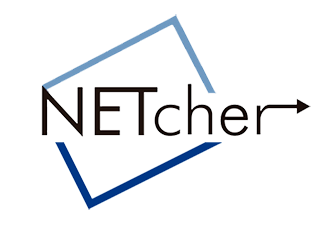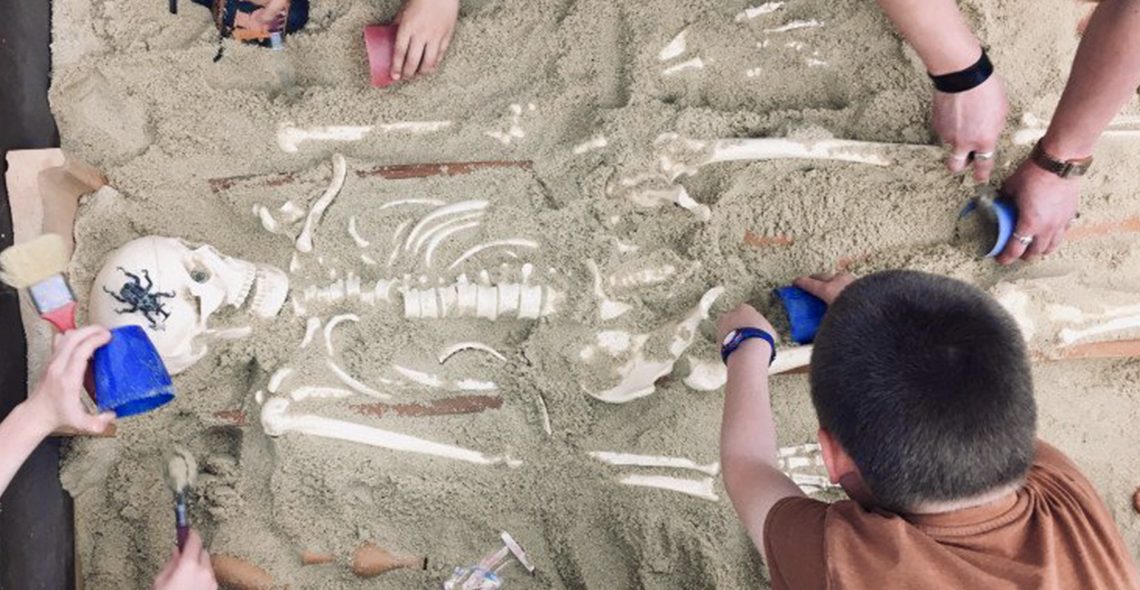Modwene Poulmarc’h, Arnaud Galliègue and Kathleen Dupinay founded the Bonne Pioche association in 2010, when they were archaeology students at Lyons 2 University, France. This project builds on a collaboration established between Séverine Sanz (Archéologie des Sociétés Méditerranéennes, CNRS, Montpellier, France) and the Institute of Pediatric Hematology and Oncology of Lyons: in this frame, archaeologists participated in interventions that took place in health facilities to explain their research discipline to hospitalized children. Bonne Pioche, which celebrates this year its 10th anniversary, has been founded with the aim of making these activities sustainable. While pursuing the animation of workshops for children in health centres (rewarded by the Initiatives Région price in 2012), the association has varied and enlarged his activities, always with the same purpose: to raise public awareness of archaeological disciplines and of their methods through recreational and educational workshops. The volunteer participants come from various fields of the discipline (history, archaeology, cultural mediation…), they are researchers and students, which enables rich exchanges on a very great number of topics with every kind of audience.
The association especially targets the young public with limited access to culture, and its activities are hosted in a large variety of locations: museums, schools, activity centres for children… We also participate to national and European events, such as the National Days of Archaeology, the European Heritage Days, the Festival of Science… Each event gives the opportunity to design tailor-made workshops, appropriate to both public and space, and to train new speakers. Bonne Pioche’s toolkit and educational media are numerous and constantly renewed to explain archaeological practice and methods, as clearly and precisely as possible. For example, the “excavation sandbox” highlights the importance of making stratigraphic excavations and to accurately record them. The importance of data recording is also explained in the “shard workshop”: by making a fake excavation of a Gallo-Roman house, people retrieve pieces of pottery and they have to use them to identify the functions of the various rooms. The necessary collaboration between various specialists in the field of archaeological practice is explained through other workshops that address, for instance, the methods and goals of anthropology, epigraphy or numismatics. The aim is to give, in a limited time and in a clear and efficient way, the key to understand the scope and the significance of scientific archaeology.
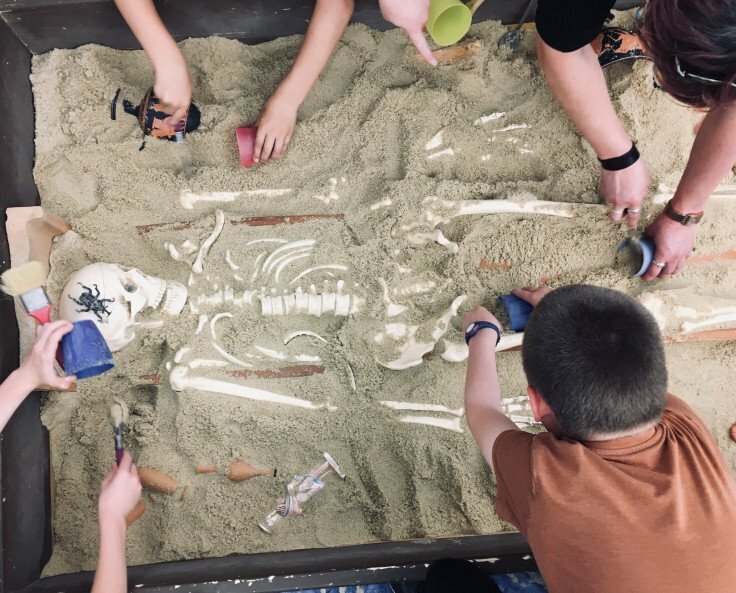
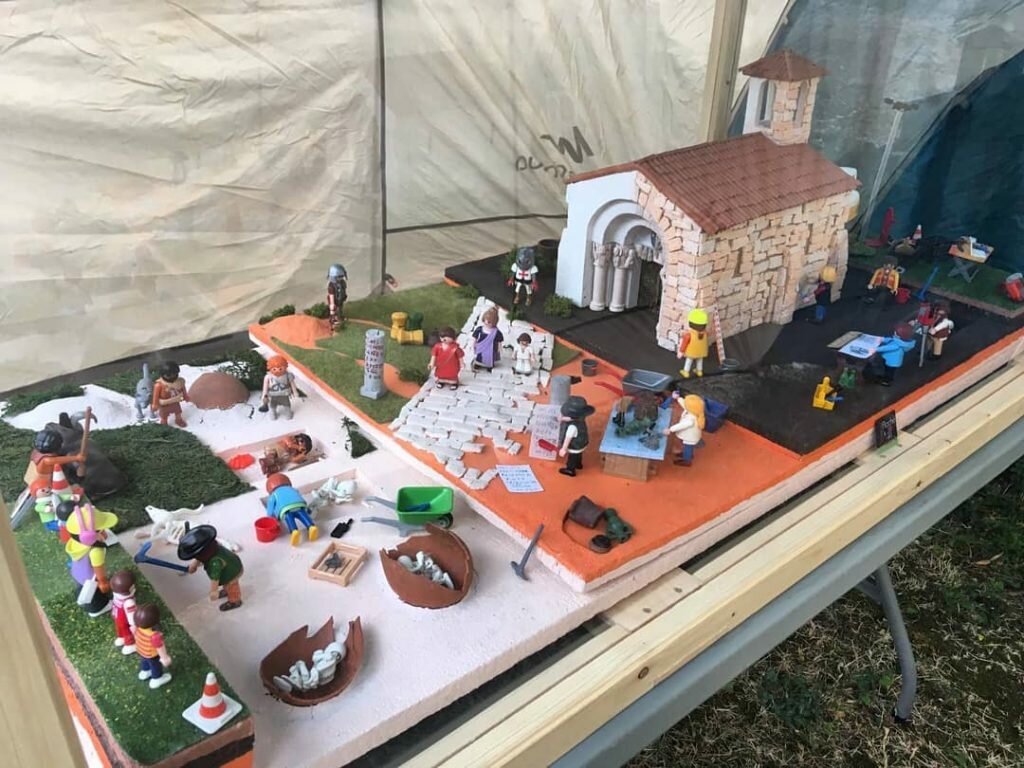
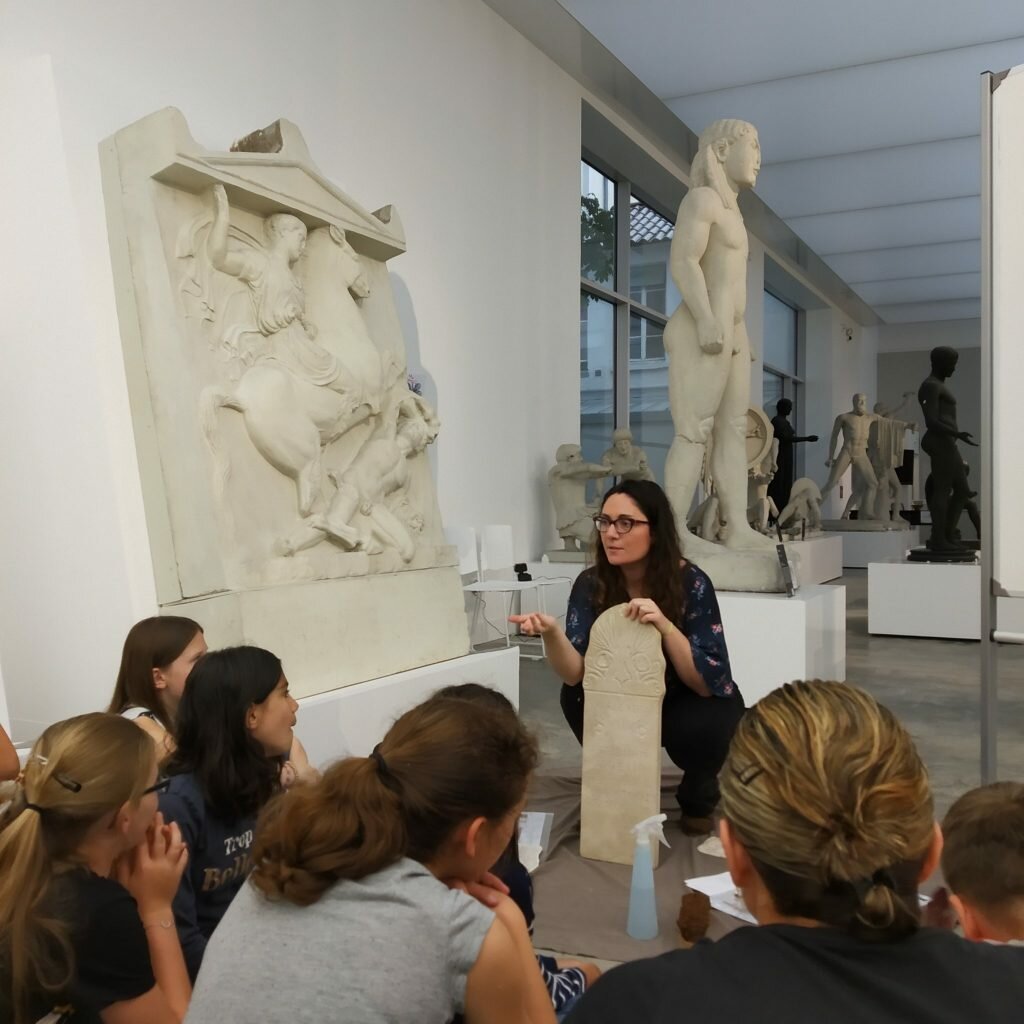
These recreational and educational activities emphasize the methods of contextualized scientific archaeology; they also alert the young audience about the dangers of a non-professional practice and of the ravages and the terrible loss of data caused by looting.
For further information, please click on the following links.
Links:
[Illustrations (© Bonne Pioche association):
- Fig.1. The excavation sandbox.
- Fig.2. Diorama: how to study past history through archaeological excavations.
- Fig.3. Epigraphy workshop (National Days of Archaeology, 2019)]
